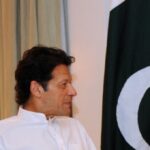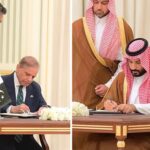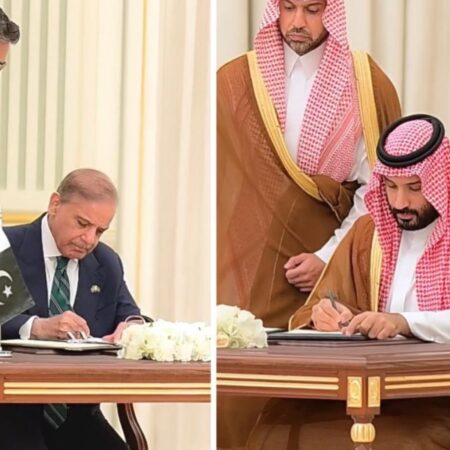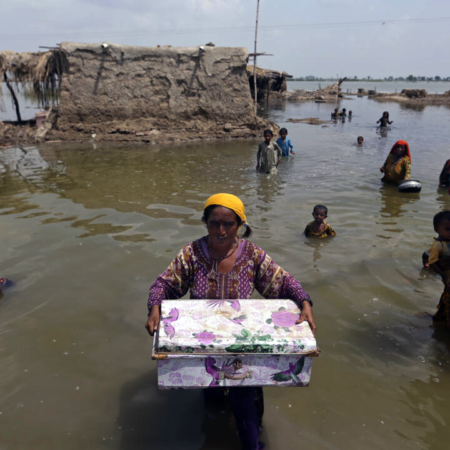
Amid mounting calls for his resignation and a worsening leadership crisis, a justice ministry official announced Monday that South Korean President Yoon Suk Yeol has been barred from leaving the country due to a failed attempt to impose martial law.
Although he has not resigned, Yoon has expressed regret for the disastrous attempt and stated that he is placing his political and legal future in the hands of his ruling People Power Party (PPP). Reports from the local media state that he is now the focus of a criminal probe.
The defense ministry stated on Monday that Yoon was still officially commander in chief, but his hold on power has been called into question due to mounting opposition to the president among senior military officers and his own party’s announcement that it would form a task group to deal with his eventual retirement.
When asked at a parliamentary session what steps have been taken against the troubled president, Oh Dong-woon, the head of the Corruption Investigation Office for High-ranking Officials, stated that he has ordered Yoon to be prohibited from traveling abroad.
Bae Sang-up, a representative of the justice ministry, informed the committee that the travel ban order had been carried out.
Despite not having the power to bring charges against the president, the panel was created in 2021 to look into high-ranking officials, including the president and their family members. Rather, the matter must be referred to the prosecutor’s office as required by law.
Although Yoon narrowly avoided being impeached in parliament on Saturday, his party’s choice to give the prime minister presidential authority has caused a constitutional dilemma for the important US ally.
Yoon has turned down calls to step down, including from members of his own ruling party. His position appeared even more precarious over the weekend when the Yonhap news agency revealed that he was being investigated for treason.
Kim Yong-hyun, the former defense minister, was arrested by prosecutors on Sunday for allegedly participating in the imposition of martial law on December 3, according to Yonhap.
On December 3, Yoon granted the military broad emergency powers to eliminate obstructionist political opponents and what he described as “anti-state forces.” Six hours later, he revoked the order when parliament overwhelmingly voted against it, defying police and military cordons.
Several military leaders, including the acting defense minister, have stated in the midst of the outcry that they will not obey any new directive to reinstate martial law.
The Democratic Party, the largest opposition party, has demanded that Yoon be removed from his command of the armed forces. Additionally, the DP has called for Yoon and all other military officers involved in the martial law disaster to be arrested.
According to a spokeswoman on Monday, Yoon’s People Power Party (PPP) had formed a task force to address issues such as “political stabilization after martial law and Yoon’s orderly early resignation.”
PPP leader Han Dong-hoon declared on Sunday that Prime Minister Han Duck-soo would oversee government matters until Yoon eventually resigned and that the president would not be involved in international or other state affairs.
The opposition has criticized that proposal, claiming it violates the constitution. It promises to introduce another impeachment bill on Saturday and demands that Yoon be impeached or resign and face legal action.
According to Chang Young-soo, a professor at Korea University’s School of Law, the president can give the prime minister power, particularly over the armed forces. The prime minister’s ability to act as head of state in diplomatic affairs is up for question, though.
Additionally, a South Korean prime minister is not elected, unlike a US vice president, which implies that their democratic legitimacy is weak. Therefore, the duration of this system will also be a concern,” he stated.
Backlash from the military
Lee Jae-myung, the head of the opposition, issued a warning on Monday that the political unrest could do irreparable damage to Asia’s fourth-largest economy, which is a significant supplier of memory chips worldwide.
By the end of December, South Korea’s finance ministry and regulators promised to use every resource at their disposal to stabilize financial markets by increasing liquidity and implementing backup plans.
The head of South Korea’s special forces said he was told to bring his troops into parliament last week to thwart a vote to reject martial law, marking the most recent instance of dissension within the military.
The commanding officer of the 707th Special Missions Group, Colonel Kim Hyun-tae, told reporters that he accepted responsibility for the acts of his troops but that he was carrying out orders from Kim Yong-hyun, the defense minister at the time.
The colonel told reporters outside the defense ministry in Seoul, “The former defense minister used us all as victims.”
He claimed that because he was afraid of being stopped, he had not informed the military of his intention to speak to the media.
Yoon’s move to impose emergency rule and give the military broad authority sparked public protests and alarmed Seoul’s allies.
Secretary of State Antony Blinken called his South Korean colleague and stated that he expected the democratic process would win out, while US Defense Secretary Lloyd Austin canceled his plans to visit South Korea.
As a result of the 1950–1953 Korean War, the United States now maintains 28,500 troops in South Korea.
With North Korea apparently deploying troops to support Russia’s war against Ukraine and strengthening military links between Moscow and Pyongyang, the unrest in Seoul coincides with a significant geopolitical moment in the region.
Cho Tae-yul, the foreign minister of South Korea, stated that he “cannot but feel sad” that the incident happened at a time when the nation is facing more security concerns.












No Comment! Be the first one.